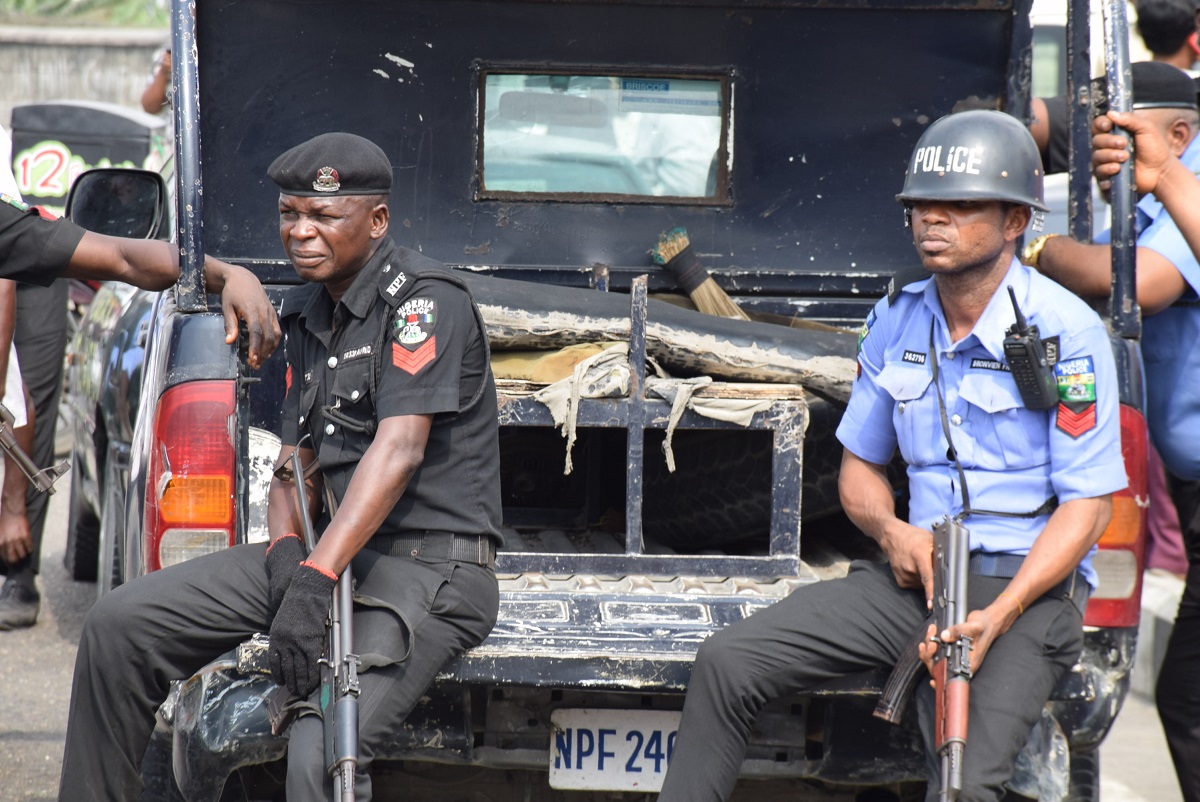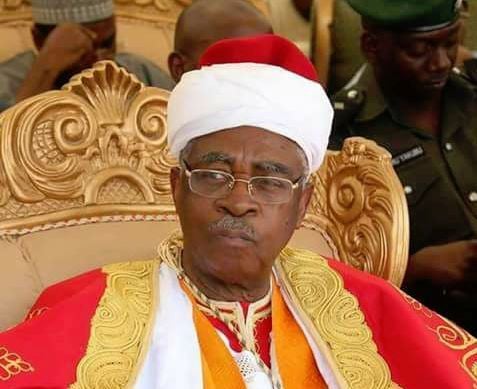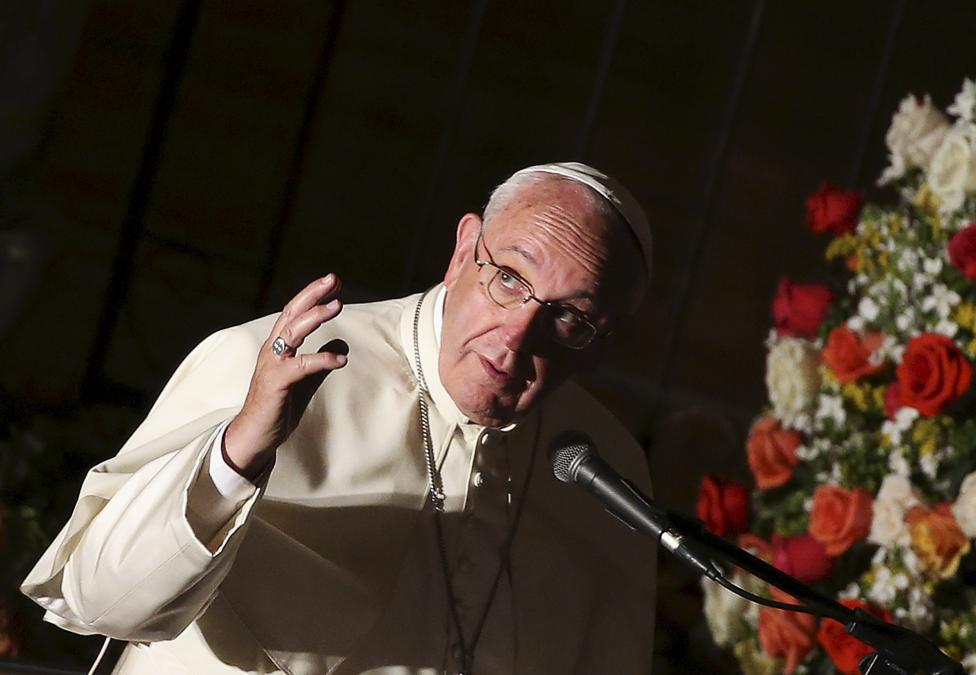BY OLLY OWEN
The issue of state police forces, never absent for long, is now back in the headlines, having been endorsed recently by first Vice-President Yemi Osinbajo, then the 36 states in the form of the Nigeria Governors’ Forum, and not forgetting the APC committee on restructuring headed by Kaduna state governor Nasir el-Rufai which recommended moving policing from the exclusive powers of the federal government to the concurrent list of powers shared between federal and state.
This latest iteration of the debate is perhaps more interesting than previous rounds in that for the first time, there is an emergent north-south consensus on devolution which seems to be overcoming the previous split between southern states generally enthusiastic for more autonomy, and northern states concerned about being cut loose from Federal support. However it is still similar to previous rounds in one important sense – it relies mainly on idealism and sentiment rather than a solid base of evidence.
States have been using various levels of intermediary, auxiliary and parallel policing providers for some years now, whether it be Vigilante Group of Nigeria, anti-crime militias, civilian JTF, or other para-police institutions. But there is virtually no evidence base even drawn from the examples which do exist which can inform our debate; a gap which a publication due in April from the CLEEN Foundation hopes to fill.
Advertisement
There are three main arguments which consistently come up in advocating for state policing. These are firstly, and most commonly, the argument that locally raised, locally governed police forces will be better at relating to the public, responding to communities, and controlling crime, than a centrally controlled national police force descended from colonial institutions which used the doctrine of ‘strangers to police strangers’ to ensure the loyalty of police to government rather than the people.
Secondly, there is the frequent observation that the federal government is not able to properly resource the police force it provides, able only to pay salaries while the police must turn to state governments or goodwill donors to provide the actual funds to operate in a meaningful sense. And thirdly, there is the issue of principle and jurisprudence in a federal nation – critics of Nigeria’s ‘centralised Federalism’ question why the centre makes one-size-fits-all laws for the constituent states, rather than each feeling free to move at its own speed. In order to have a proper look at what is at stake, we should take each of these in turn.
So for the first issue – the effectiveness of locally-governed police forces. This is often based on a misunderstanding of the current situation, in that many advocates do not acknowledge the current situation, which is that the vast majority of constable-level recruits are posted ‘back to state’ to police a local public of which they are culturally and linguistically part. But that aside, they argue that localised governance of the police would allow it to become more accountable and responsive than the same officers obeying orders from distant Abuja. Against this, opponents, including media commentators such as the retired commissioner of Police Abubakar Tsav (http://nationaldailyng.com/tsav-opposes-state-police/) highlight the dangers of this to national unity, via the threat state police may form to political opponents of a state administration, and its effects on national politics. The truth, the evidence seems to show, is both – the historical example of Nigeria’s own Native Authority police as ably written by OUA Ile-Ife lecturer Kemi Rotimi (http://www.africanbookscollective.com/books/the-police-in-a-federal-state ), shows forces which were both effective in gathering intelligence and combating crime, and which were very partisan at times of political crisis and thus undermined democracy in their local settings. It is sad but true, as we can see from Mubarak’s Egypt or Jammeh’s Gambia, that the same policing structures which give us deplorable authoritarianism also result in low levels of everyday crime, simply because people live under a culture of surveillance and fear. I am not sure that Nigerians’ evident love of freedom of speech and action would tolerate that option.
Advertisement
Moreover, the question of local control over police recruitment poses a clear issue of public trust when we consider the status and concerns of non-indigenes in a system where ‘indigene-settler’ relations may be tense. If ‘state police’ were allowed to equate to ‘indigene police’, the role of the security forces in times of communal tensions could be deeply worrying and inflammatory.
Secondly, the issue of resourcing. It is very true to say that currently the federal government can do little more than to pay police salaries, which themselves have come under increasing stress after the recent years of inflation and naira devaluation.
For most real operating funds, a state command must rely upon the generosity of the governor or state government, or such stakeholder-led initiatives as the Security Trust Fund successfully operated in Lagos for some years. Federal Government budget constraints dictate not only equipment and operations, but also the number of police who can be recruited. But let’s look at the counterfactual; not all states do currently manage to fund police operations to any meaningful degree, beyond occasional capricious handouts from the Security Vote. So how many would be able to bear the additional burden of a huge monthly police salary bill? And if it could not be paid on time, as seems likely at least in the states which currently are running close to a year’s arrears in civil servants’ salaries, the result could then be an armed and legally empowered group of men and women in uniform with a strong interest in paying themselves – which in such circumstances would prove more of a threat to security than a provider of it.
Equally, what of the specialist functions, such as training institutions, specialist teams, labs, records, and so forth? A sensible solution might see these continue to be sourced collectively, or from the existing Nigeria Police Force, but the imperatives of political patronage and the contractor class would likely tempt many states to design their own unaffordable and semi-functional white elephant elements.
Advertisement
Third is the issue of the legal origination of such structures. Many advocates of state policing hold that states should be free to legislate on their own police. Replacing a top-down Federalism with a bottom-up model may be the most democratic in principle, but it is the most potentially problematic in practice.
By handing states the ability to build and operate their own police under their own mandate, Nigeria would be handing crucial powers to the level of government with least capacity to exercise them responsibly.
As state houses of assembly, unlike the national assembly, are not meaningfully autonomous from the Executive, ‘state police’ in many if not most States would basically equate to ‘the Governor’s police’ under executive control and with few checks and balances against abuse. As it is, Federal agencies have enough problems ensuring merit in the selection of personnel under constant pressure to recruit loyal followers of politically influential persons – imagine how much harder this would be for a State security agency. We may think that not all states may wish to have their own police if they cannot afford them, but with the current unemployment situation, could we really expect many to resist the pressure for long?
To be accountable, affordable and professional, any state police force to come would need to be answerable to the general public as well as the executive and assembly, perhaps through localised mechanisms including a variety of political, technical and civil representatives similar to the current national Police Service Commission, as well as to a national-level regulator, perhaps either the NPF or PSC as a guarantor of professional standards and national equity. It would also need to share many common facilities, resources, collaboration networks such as databases, and standardised and shared training facilities both basic and specialist with others and with the national level.
Advertisement
And it would be less open to abuse if of closely-defined competence – perhaps with powers of arrest only, with the NPF reserving exclusive powers of investigation and prosecution, or with jurisdiction over compoundable (minor) offences only, That is even more important when it comes to lethal force – perhaps state police would be best unarmed, or armed only when licenced as Special Constables to the NPF, a legal possibility which currently exists. So in all, much as a few states itch to perform to the best of their ability in managing security challenges, it is abundantly clear from the evidence that the only safe way to go would be to move, if at all, at the pace of the slowest, with federal law carefully dictating the scope, requirements, and checks and balances to be used by any state.
In fact, the call for state police can be an easy crowd-pleaser, a knee-jerk reaction to recurrent inadequacies of the centre, but the politics of it don’t stand up well to close scrutiny. For a start, very few state governors fully exercise the powers they already hold over policing. The power to continue or discontinue prosecutions is already vested in a state’s attorney general and is thankfully not often abused in that capacity.
Advertisement
But with a few exceptions, most states underfund the police as much as does federal government, only noticing them when there is an imminent crisis. A governor is the chief security officer of a state, and it is true, lacks the means to hire and fire police officers, but then how many state governments use any other incentives or planning tools to ensure performance? How many create strategic policing plans with targets, resource them, incentivise or reward officers for achieving them? Lagos’ State Security Trust Fund (SSTF), including stakeholders from the public and business, as well as government, has proved effective in resourcing the police in Lagos State, but also in helping it set priorities in response to public concern – yet of the 14 other states governments which have established SSTFs, few have allowed stakeholders to exercise real control and thus most have been of limited impact.
Equally, the Nigeria Police Council, recognised in the constitution, exists on paper as a forum for allowing states a voice in control of the police alongside the president and executive branch, but how many governors have called for its actualisation as a mechanism for shared voice and accountability? Until real evidence is deployed to establish the nature and scale of the problem, the feasibility of the solutions, and the safeguards needed, the call for state police is likely to remain more a political rallying-cry than a realistic solution to security provision in Nigeria.
Advertisement
Dr Olly Owen is a research fellow at Oxford University’s department of international development. This piece was written for The Peter Bauer Foundation.
Advertisement
Views expressed by contributors are strictly personal and not of TheCable.






